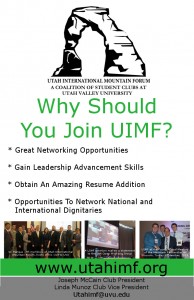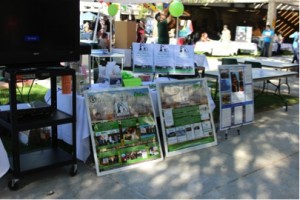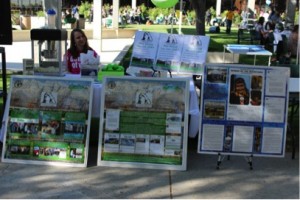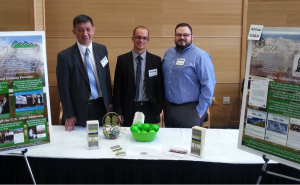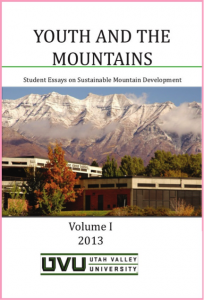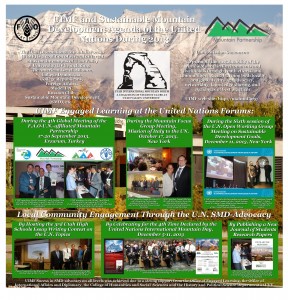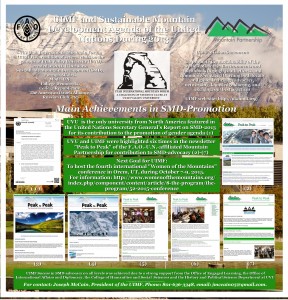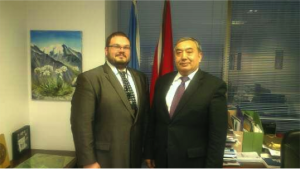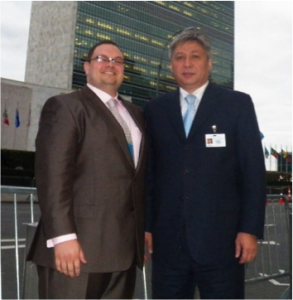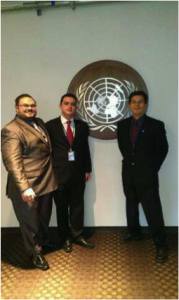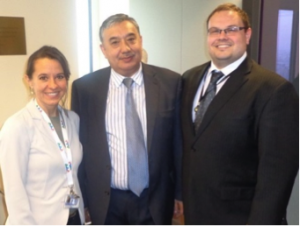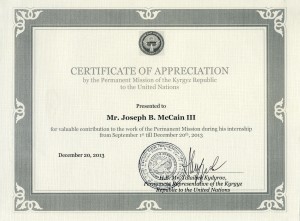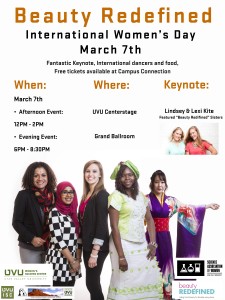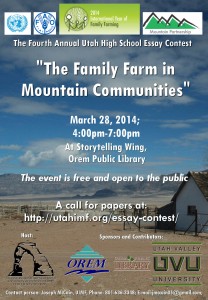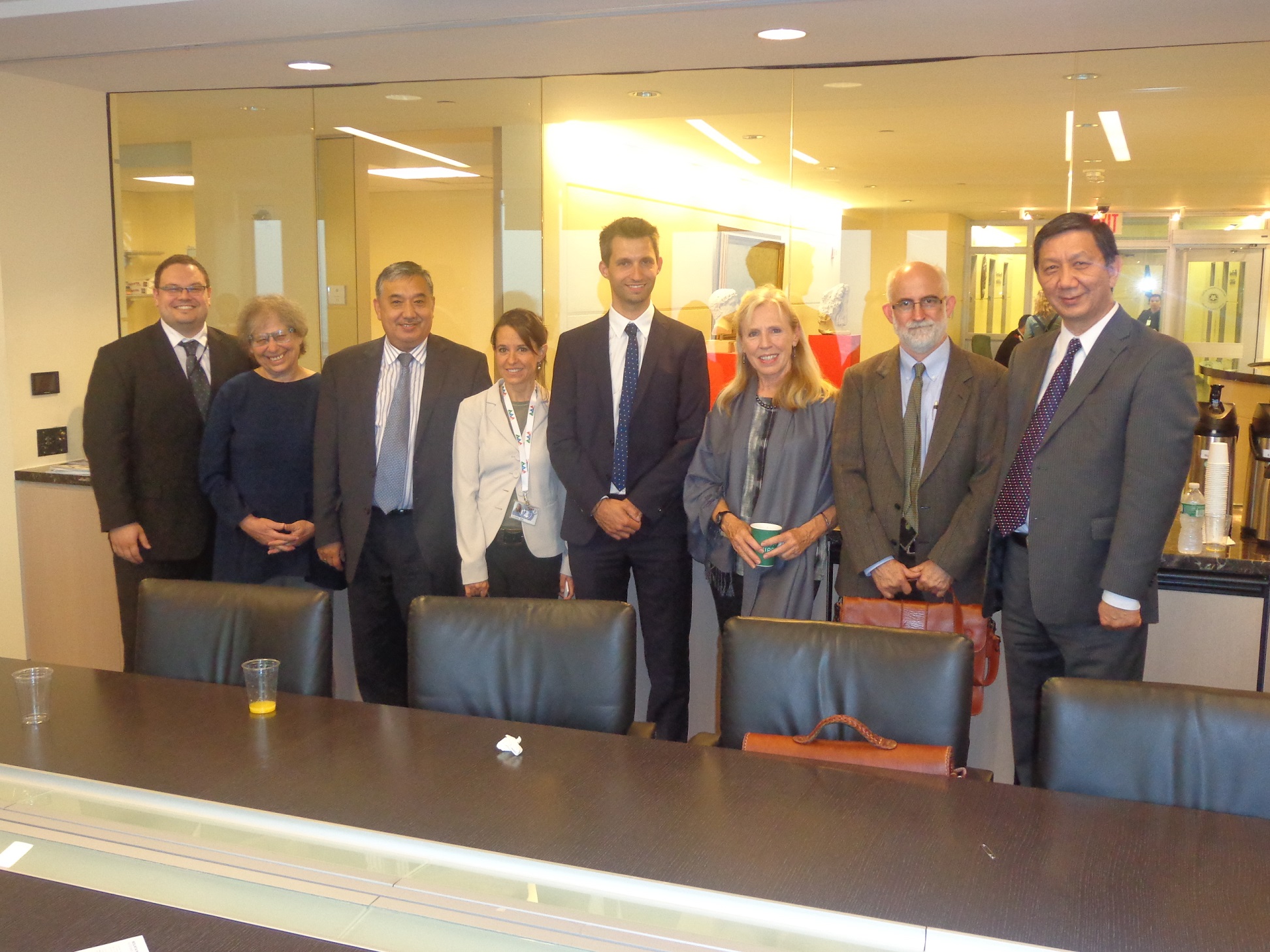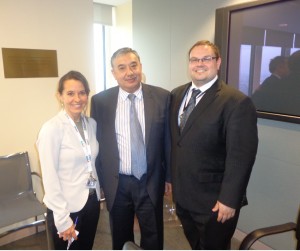February 26, 2014
For Immediate Release
University Marketing & Communications: Melinda Colton
The Utah International Mountain Forum, a coalition of student clubs at Utah Valley University, will host Roger Kangas, a prominent U.S. expert on Afghanistan and Central Asian affairs, as he visits the campus this week. Kangas will present “Post-2014 Afghanistan” on Thursday, Feb. 27, at 10 a.m. in Sorensen Student Center, room 213b. The lecture is free and open to the public.
Kangas is the academic dean and a professor of Asian studies in the Near East South Asia Center for Strategic Studies at the National Defense University in Washington, D.C. He was an adviser to the Combatant Commands, NATO/ISAF, and contributed to the promotion of political and economic reforms in Eurasia as a representative of the National Democratic Institute, American Councils for International Education, USAID and many other U.S. government agencies.
This visit of a dignitary from Washington, D.C., represents just one example of the UIMF’s approach to UVU’s student involvement in community engagement learning, on national and international levels. Members of the UIMF arranged the entire visit, which allows them to gain important professional skills and knowledge in protocol, logistics, building relationships and networking.
While at UVU, Kangas will discuss areas of possible joint cooperation between his institution and UVU, including a UVU initiative to promote a sustainable mountain development agenda of the United Nations as a basis for working with Central Asia.
Kangas will also discuss his professional experiences as well as possible tips for studentsinterested in international relations and security matters. He will also visit the ROTC headquarters at UVU and have lunch with cadets.
“This visit by Dr. Kangas gives many of our students a unique chance to gain great professional experiences and knowledge,” said Anton Koshelev, UVU student and vice president of the UIMF. “And at the same time we get a chance to share with him many interesting initiatives and projects advocated by the UIMF and UVU, on an international level in the region of Central Asia and Eurasia.”
UVU’s Office of International Affairs and Diplomacy, Department of History and Political Science and the Center for Constitutional Studies provided funding for Kangas’ visit.
UVU Student’s Experience in Hosting a VIP-guest
Look at clubs across the U.S. and you will find a seemingly infinite number of them. Some have power to decide what direction the school may take; others are for entertainment and provide at least a little preparation for the future. Being a member of the Utah International Mountain Forum (UIMF), a coalition of student clubs at Utah Valley University, I have found that this particular set of clubs has a focus is on furthering the professional abilities of the students within.
It was evident, when we hosted Dr. Roger Kangas, the Dean and Professor of Central Asian Studies for the Near East South Asia Center, at the National Defense University, Washington, D.C. during March 25-28, 2014 and I was given the pleasure to work with my UIMF colleagues in this three day event. Because of the connection of our VIP guest to Pentagon, I was asked by the student organizing committee to accompany him during his entire visit as a protocol by wearing my military uniform. In doing so, I have learned that this coalition of clubs creates activities that are planned meticulously and executed by students. From such events the students learn vital skills communication and given leadership opportunities that are not only beneficial for the club, but can be further translated to uses in his/her future career.
Dr. Kangas’ visit was most beneficial to the students planning it. Immediately when we learned of the visit, fellow UIMF members delegated responsibilities. Some of my student colleagues were responsible for logistics, by arranging for our guest transportation, and accommodation, some – for media coverage and, for example, my friend Sam Siebach dealt with a video-coverage. And Anton Koshelev, President of Alexander Hamilton Society, who coordinated effort of all students, provided transportation to and from the airport.
 (Right to left) myself with Dr. Kanga and Cadet Martin
(Right to left) myself with Dr. Kanga and Cadet Martin
I was also tasked with coordinating between the UIMF and the university’s ROTC program in hosting a luncheon for our guest with participation of cadets, many among whom made tours to Afghanistan. My first reaction was an avalanche of thoughts and uncertainties. Do we go off campus? Who pays for the meal? There were so many possibilities that the openness of options seemed to paralyze action at the start. The task would be done but would not have the desired finished product if it were not for my lesson in coordinating. As a student I have learned that when given a duty, it is better to cross coordinate with others that might have strong connections to desired institutions, than to simply carry it out on my own. Thus when told to create a lunch event, I found it acceptable to break it down and further delegate specific logistics to those with connections within the university’s catering service and venue experts to ultimately achieve the desired effect of the lunch. I was so happy that lunch went well and its hosts from ROTC, Maj. Owens and Cadet Jeremy Duty were able to successfully play their role and also to have a very productive and successful conversation. Dr. Kangas shared his thoughts about situation in Afghanistan after withdrawal of the U.S. troops this year and questions from the audience demonstrated that many cadets in the audience were quite concerned by the further worsening of situation in that country and challenges for the United States to stabilize their situation due to a growing insurgency after 2015.
 Dr. Kangas with cadets after lunch at UVU
Dr. Kangas with cadets after lunch at UVU
These thoughts were a sneak peek into his main presentation on Afghanistan which came the next day. All of us watch the news and see the struggle Afghanistan faces. But those reports we see on T.V. are solely focused on issues within Afghanistan and maybe effects from decisions of its neighbor, Pakistan. Dr. Kangas is an expert on that entire central Asian region and brought to light issues and solutions from those countries many Americans might not know even exist. For example he made a solid point about how in the future the military supply highways will become the “new silk road.” Creating possibilities even after a troop withdrawal, Afghanistan will be well connected to sustain commerce. And countries like Kazakhstan and Kyrgyzstan will now help play a regional support roll in sustaining growth. This presentation (in addition to organizing the flag ceremony and other logistics behind it), has provided me with multiple perspectives. Traditional media sources would not be able to offer this.
 Elizabeth Goryunova (second from right) presents a gift to Dr. Kangas in presenceof myself and Anton Koshelev (L)
Elizabeth Goryunova (second from right) presents a gift to Dr. Kangas in presenceof myself and Anton Koshelev (L)
As I was working as an escort for Dr. Kangas, just being in the vicinity of conversations, I learned how the framework is created from a club with an idea, to creating action. No example would stand out other than going to the World Trade Center in Salt Lake City. We met with the Interim President and CEO Mrs. Elizabeth Goryunova. After a brief talk on events throughout the central Asian region and the exchange of business cards, Mrs. Goryunova extended an invitation to Dr. Kangas to a gathering of prominent Middle East ambassadors. The gesture of openness caused seemed to cause a reciprocal action where Dr. Kangas offered “With sufficient time for notice” have visitors to D.C. make a stop in Utah. I saw firsthand how a simple meeting between two well-connected professionals can create benefits for all parties involved. And if there is anything for current and future UIMF members to take away is that networking is the vital veins and arteries to any operation.

Anton Koshelev (L) and myself ( R ) with Dr. Kangas ( C ) in Park City, UT
A key aspect of the UIMF is that students are playing every role in hosting presentations. Members within the leadership head gain experience by the delegation of tasks to the upbringing of a successful event. And to those completing the tasks; learn valuable networking and communication skills, all to our own benefit and to further increase our efficiency of pushing the UIMF agenda.
Matthew Rands, Vice-President of the Sustainable Mountain development Club
Dr. Roger Kangas on Afghanistan and Central Asia
I had the pleasure of attending a short one hour session to hear Dr. Kangas talk about the current political environmental of Central Asia and specifically Afghanistan. Afghanistan currently faces an especially tumultuous time as the United States winds down its military operations there and looks to pull out. The widespread political, social, and cultural upheaval Afghanistan has experienced this past decade and a half will undoubtedly shape the Afghanistan we will see in the future. To gauge just how much Afghanistan has been razed and changed Dr. Kangas mentioned how it is not just being rebuilt, it’s being built.
 Dr. Roger Kangas during his presentation at UVU
Dr. Roger Kangas during his presentation at UVU
Dozens of countries have been involved in Afghanistan, from providing security forces to humanitarian forces. The sheer number of interested parties indicates the importance of Afghanistan to the Central Asian region. Currently, the mission of the United States is maintenance, not expansion or conquest. The US is seeking stability and consistency in the civic side of Afghanistan, a sharp refocusing of attention and manpower from militaristic actions even a year ago. From 2001 to 2014, the mission and goals of a US occupation and military presence shifted and changed, evolved and fluxed. It was, as Dr. Kangas stated, “an era of changing missions.”

UVU faculty and students at Dr. Kangas presentation about Afghanistan
Furthermore, as Afghanistan enters a heated stage with multiple countries such as Pakistan, Russia, Iran, and China, the US has increasing concern for how those states will act in relationship to one another. China is especially concerned with cyber security threats from terrorist groups located in Afghanistan.
Prior to this lecture, I had little knowledge or concern for the happenings of the Middle East, particularly Afghanistan. I am in the military so I have had a little exposure to the events transpiring in Afghanistan via military news. However, I did not know about the political or social situation that Afghanistan now wrestles with. Moreover, I did not know just how many times the mission has changed for the military in Afghanistan. I remembered that the US invaded Iraq and Afghanistan under the pretense of weapons of mass destruction and terror cells, but I had not kept up with the evolving mission of the US military occupation.
What interests me the most is the political situation of Afghanistan in conjunction with other countries. To me, Central Asia looks much like a chessboard in the sense that many pieces are moving, attempting to gain power, and maneuvering towards a secure future. Each country has very real priorities of securing boarders, widening purview, and ensuring a flow of resources to further economic development. Furthermore, each nearby country has a legitimate fear of terrorist cells moving from Afghanistan to within their borders. Should neighboring countries prioritize securing Afghanistan’s borders or their own borders? Pakistan was especially embarrassed because it housed Osama Bin Laden without governmental knowledge.
Power plays intrigue me as well. While I think a lot about individual maneuvers to attain power and the ascendency of some individuals, that kind of maneuvering on the state level astonishes me. Leaders of powerful states have to look at their own position in relation to the position of neighboring states and make strategic decisions about which plans to execute, what words to say, what policies to enact, and what course of action will best benefit their country.
William Ng, student of UVU
Leading expert on Afghanistan at UVU Campus
Dr. Roger Kangas’s lecture addressed Afghanistan and the future of that county in the surrounding region. To understand the current condition of Afghanistan, one must understand the events that have contributed to its reformation. After 2001, the United States’ mission was to eliminate Al-Qaeda and other branch groups like the Taliban through military action. The crusade to eradicate terror in Afghanistan was quickly won. Unfortunately the conflict had caused most remnant groups to retreat into Iraq and since then efforts have been made to free Iraq from these groups. Afghanistan is not currently the main focus of the War on Terror but it was the first country that was impacted.

From 2001 to the present, countries from around the world had to re-evaluate their policies toward Afghanistan in terms of humanitarian aid, educational aid, political aid, etc… Thus far all efforts in Afghanistan have not been to rebuild Afghanistan but rather to build a new Afghanistan. For the United States, 2014 is an important year because President Obama has issued an order calling for the complete removal of American military in Afghanistan. In addition, the focus for this year in Afghanistan will be on transportation. Due to the fact that Afghanistan is a landlocked region, transport for trucks, trains, aircrafts as well as access to water are the main concern. These transportation routes reach countries like Germany, Russia, Saudi Arabia, Turkey and many others. It is a multifaceted system of various transportation methods. If efforts in Afghanistan are successful in implementing these transportation methods these routes will become a modern day Silk Road. This is especially important because of past tensions between Afghanistan and surrounding actors. Because of the instability in the region it is believed that there will always be some outside presence to help maintain order. This integrated transportation system will open Afghanistan up to the rest of the world and connect them to other countries in their region.

Dr. Kangas with members of Utah International Mountain Forum, hosts of his visit to UVU
There are various conflicts of interest in this setting that might influence the success of failure of these programs in Afghanistan. These different interests do not come only from inside Afghanistan but also from surrounding countries. In Pakistan there are agendas to control Afghanistan and secure the power foundation in their own country through security measures. In both Pakistan and Afghanistan there are different ethnic groups who are in constant conflict. In Iran there are controversial interests that include trade with Afghanistan and support for the Taliban. In Russia their interests include containment of threats from their southern border and their self image of being a country with great power. In China their concern is the presence of “non-hemispheric powers” and Uyghur separatists. Each country has a solution for their problems through separate organizations that involve alliances with surrounding countries with similar interests. These are but some of the issues that surround Afghanistan’s transportation system and whether or not Afghanistan succeeds or fails there will be repercussions throughout the area.
As complex as these situations appear, the outlook is optimistic. Afghanistan has made great progress in becoming a stable country and further investment into Afghanistan will be beneficial to Afghanistan, the region, and the rest of the world.
Arisha Franco, UVU student
Presentation Link:
